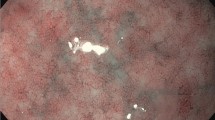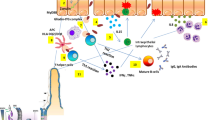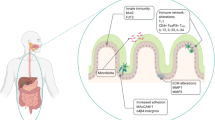Abstract.
Glycogen storage disease (GSD)-1b has been associated with neutropenia and abnormalities of neutrophil function. Many individuals with GSD-1b manifest chronic gastrointestinal inflammation. Our study was performed to precisely establish the type, frequency, and spectrum of gastrointestinal disease in patients with GSD-lb. We established a medical database of 36 individuals affected with GSD-1b, utilizing patients at our center, disease registries, and direct contacts with North American referral centers specializing in genetic disorders. Records were reviewed, focusing on documentation of gastrointestinal involvement. Gastrointestinal symptoms or manifestations were present in approximately 75% of the patients, including chronic abdominal pain and diarrhea, perianal fistula or abscess, and oral aphthous ulceration. Of patients identified, 28% had documented inflammatory bowel disease (IBD) and an additional 22% of patients had symptoms highly suggestive of IBD, but had not undergone comprehensive diagnostic evaluation. Gastrointestinal involvement was found to be indistinguishable from idiopathic Crohn disease (CD) by detailed review of clinical, radiologic, endoscopic and histopathologic findings. Many patients had significant improvement or resolution of gastrointestinal disease in response to G-CSF treatment. The expression of CD in patients with GSD-1b may be delayed or prevented by G-CSF treatment. Conclusion: a strong association exists between glycogen storage disease type 1b and inflammatory bowel disease. A high index of suspicion for Crohn disease should be applied in evaluating patients with glycogen storage disease type 1b and intestinal symptoms. These results provide further support for the hypothesis that some forms of inflammatory bowel disease may result from impaired mucosal innate immunity. Additional investigations into the intestinal disease in glycogen storage disease type 1b may be directly relevant to the etiology and treatment of idiopathic Crohn disease.
Similar content being viewed by others
Author information
Authors and Affiliations
Additional information
Electronic Publication
Rights and permissions
About this article
Cite this article
Dieckgraefe, B.K., Korzenik, J.R., Husain, A. et al. Association of glycogen storage disease 1b and Crohn disease: results of a North American survey. Eur J Pediatr 161 (Suppl 1), S88–S92 (2002). https://doi.org/10.1007/s00431-002-1011-z
Issue Date:
DOI: https://doi.org/10.1007/s00431-002-1011-z




